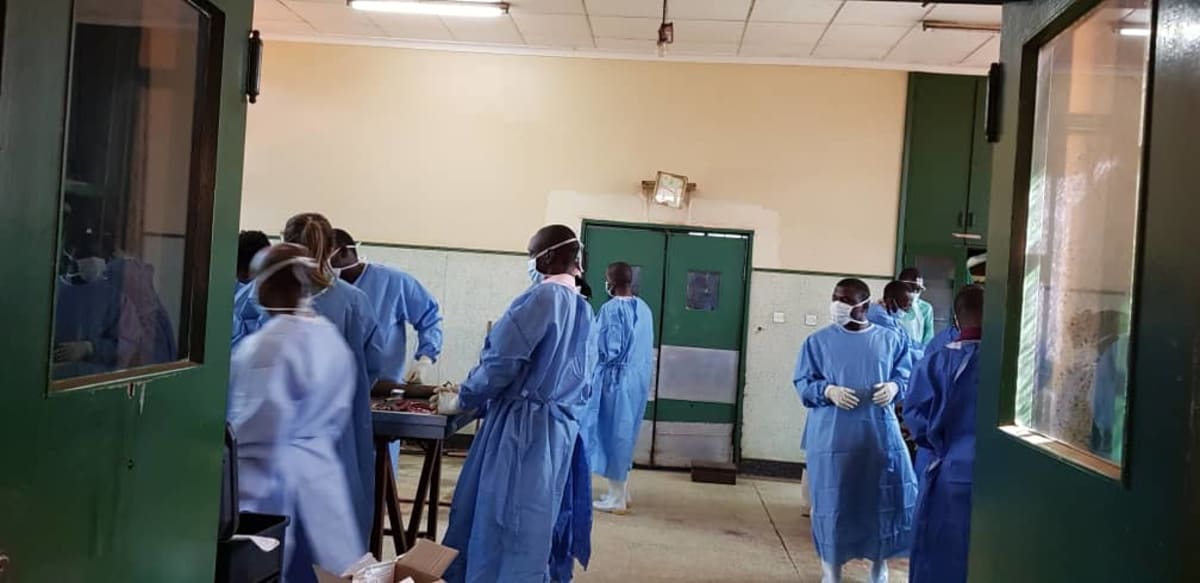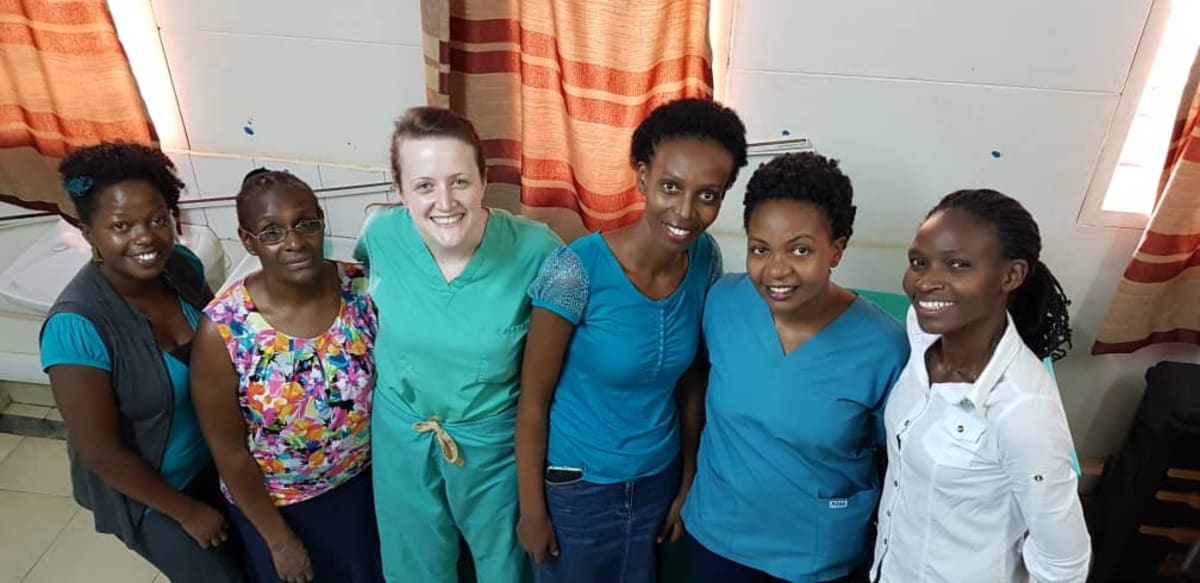Trauma is the leading cause of death in low-income, low-resource countries like Uganda. Unfortunately, Uganda’s young and productive population are at particular risk of premature death due to trauma due to the rise of cheap, unsafe transportation. Trauma training, however, is scarce and largely unstructured. Mulago Hospital in Kampala, Uganda is an extremely busy trauma hospital and the main academic affiliate and training site for surgical trainees of Makarere University School of Medicine. Having performed a previous needs assessment, surgical trainees need a structured, formal, advanced operative trauma course including ultrasound and cadaveric dissection components.
Proposed Training Course:
All second and third year surgical residents in Mulago hospital will participate in a 3 day Operative Trauma and Resuscitation Course with an ultrasound extension for Ultrasound Clinical Immersion.
Each day of the course will cover important clinical management and didactics in the morning while the afternoons are reserved for cadaveric dissection.
Trainees and local faculty also participate in trauma education related research as part of this collaboration.
How will it make a difference:
I believe that capacity building is one of the most effective ways to improve trauma care in low resource countries like Uganda. Far more durable than short clinical mission trips, education based collaboration enhances the training, fosters an environment of inquiry, and ultimately improves both access to and quality of patient care.
Uganda trauma patients and trauma trainees will benefit from this project.
As previously stated, trauma mortality is astronomical and a major public health crisis in Uganda. The number of trained trauma surgeons are completely inadequate to handle the volume and complexity of traumatic injuries in the country. Given this significant shortage, there is inadequate training and supervision for current trainees and consultant surgeons alike.
Not only will the trainees benefit from this training course, but the population of Uganda will benefit from improved skill set in trauma management.
The expected impact is that trainees who participate in the course will improve their understanding and confidence in management of complex trauma, which is increasingly prevalent in Uganda.
Education trips are by design bilateral in exchange. We often learn much more than we teach. I hope to take lessons learned in Uganda to foster collaborative improvement of our curriculum, based on local needs. We also hope to encourage bilateral exchange between Ugandan surgeons and our local surgeons to facilitate training and research. Through these education focused courses, we develop long term relationships with our local partners.






Our most important mission was to increase capacity and expertise through education. So our hope is that through education and relationship building with local surgeons, we are indirectly (and perhaps directly) helping the patients. What has been wonderful is the longitudinal experience - seeing the effects of our education endeavors over a sustained period of time. We are so grateful for our local collaborators and hope to continue education opportunities in the future.